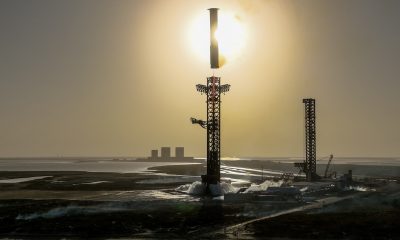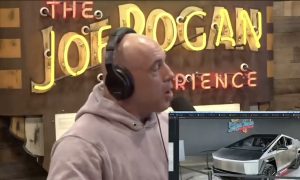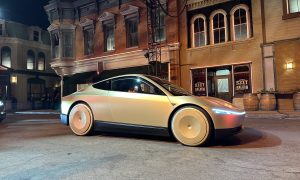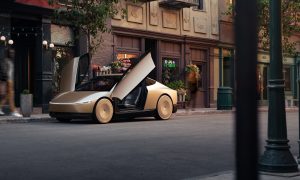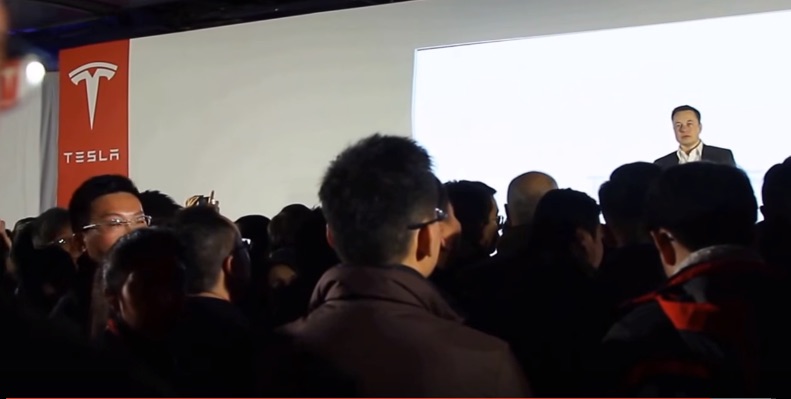

Investor's Corner
Elon Musk Visits Hong Kong, Talks Tesla’s Future in China (Video)
Speaking at a technology startup forum in Hong Kong today, Tesla CEO Elon Musk told the audience, “Hong Kong will probably be the leading city in the world in terms of electric cars”. [It can] serve as an example to the rest of the world on what to do,” Musk said according to the South China News. “I currently do not foresee any city exceeding Hong Kong. It will be the leader of the world,” he added.
The Hong Kong Government has shown a strong support of electric vehicle adoption by its initiatives to install charging stations throughout the city, and enact policies that favor purchasers of electric cars, including a registration tax waiver.
This apparently has worked. In 2010 there were 100 electric cars in Hong Kong. At the end of December, 2015, there were 4,198 EVs on the roads. Tesla sold 2,221 Model S sedans in Hong Kong last year, which accounts for 80 percent of newly-registered electric vehicles in the city.
https://youtu.be/12FVtZh5SLs
Musk speaking at a Special Event for Tesla Hong Kong (above)
Despite the government’s support of EVs, it has not granted permission to use autonomous driving technology. Hong Kong has banned most features within Tesla’s recent Autopilot update that includes Autosteer and self-driving capabilities. One of the items on Musk’s to-do list while in Hong Kong is to meet with Chief Executive Leung Chun-ying to reassure him autonomous driving technology is safe to use and should be allowed on Hong Kong’s roads.
Elon said he thinks Asia will be the “biggest area of expansion” for Tesla in the next several years. He said his company plans a massive increase in Supercharger stations to accommodate that expected expansion of sales. He did say that Hong Kong has been far more receptive to Tesla automobiles than authorities on the mainland. Because of high import duties, Teslas are more expensive in China than in any other country, he added.
Later in the day, Musk sat down for an interview with Kristi Lu Stout of CNN. She asked him if he thought China, which is plagued by intense smog in its cities, realizes how important electric cars like Teslas are to its future. Musk was very diplomatic, saying that China is embracing electric cars and that volume sales in that country will be dependent on local production. Once Tesla begins making cars in China, its products will be much more competitive with those made by indigenous manufacturers.
Asked by Stout if the Model 3 will be manufactured in China, Musk replied that it would — eventually. “If it was possible for us to do local production in China today, we would. But I think it is going to be close to 3 years before we can achieve that,” he said. The Model 3 will be a “smaller car without so many bells and whistles as the S or X,” but he expects it will be a “compelling” car.
Last year, Musk was quoted as saying the Model 3 would be definitely manufactured in China, leading some to assume the new car would be built there and then imported to the US. Musk was quick to clarify that the Model 3 and all Teslas would always be built in America, but that other factories in China and Europe might be required to meet demand in those parts of the world. He acknowledges that local production in China will be essential to overcome the high import tariff issue.
He then told Stout he welcomes the Chevy Bolt to the marketplace, especially if it is what he calls a “compelling car” in its own right. Several times during his visit to Hong Kong, he reiterated that Tesla’s main goal is to accelerate the development of sustainable transport and speed the transition away from fossil fuels. Any company that helps with acheive that goal deserves credit, he thinks.
As always, Musk was poised, confident and dedicated to Tesla’s central mission. His presence in Hong Kong was a testament to his commitment to the Asian market.
Photo Credit: South China News, Electric Jen
Investor's Corner
Tesla “best positioned” for Trump tariffs among automakers: analyst
Ives has a price target of $315 per share for the electric vehicle maker.
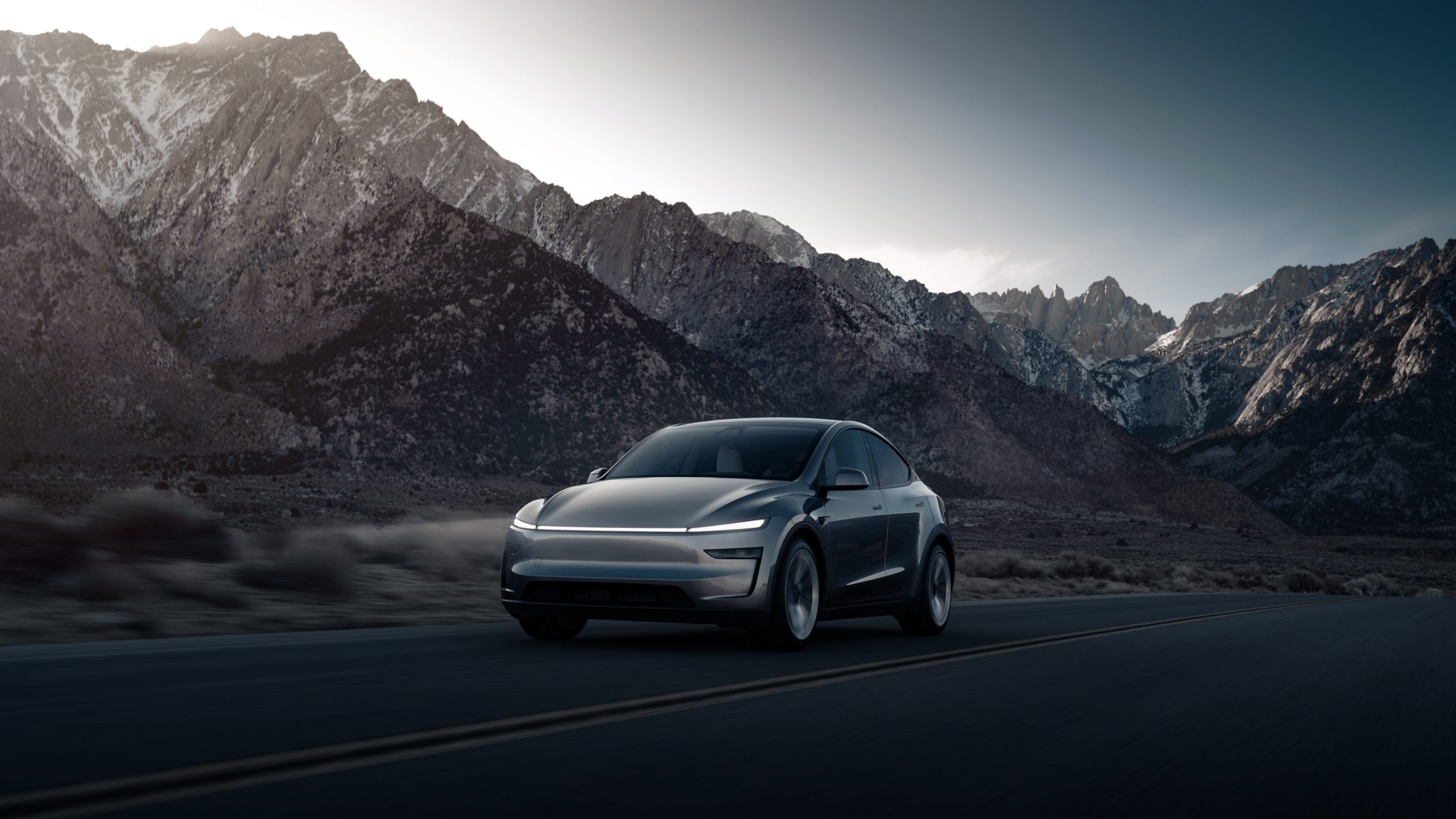
Wedbush analyst Dan Ives recently shared his thoughts about Tesla (NASDAQ:TSLA) amidst the Trump administration’s tariffs. As per Ives, Tesla is best-positioned relative to its rivals when it comes to the ongoing tariff issue.
Ives has a price target of $315 per share for the electric vehicle maker.
Best Positioned
During an interview with Yahoo Finance, the segment’s hosts asked about his thoughts on Tesla, especially considering Musk’s work with the Trump administration. Musk has previously stated that the effects of tariffs on Tesla are significant due to parts that are imported from abroad.
“When it comes to the tariff issue, they are actually best positioned relative to the Detroit Big Three and others and obviously foreign automakers. Still impacted, Musk has talked about that, in terms of just auto parts,” Ives stated.
China and Musk
Ives also stated that ultimately, a big factor for Tesla in the coming months may be the Chinese market’s reactions to its tariff war. He also noted that the next few quarters will be pivotal for Tesla considering the brand damage that Elon Musk has incited due to his politics and work with the Trump administration.
“When it comes to Tesla, I think the worry is where does retaliatory look like in China, in terms of buying domestic. I think that’s something that’s a play. And they have a pivotal six months head, in terms of what everything we see in Austin, autonomous, and the buildout.
“But the brand issues that Musk self-inflicted is dealing with in terms of demand destruction in Europe and the US. And that’s why this is a key few quarters ahead for Tesla and also for Musk to make, in my opinion, the right decision to take a step back from the administration,” Ives noted.
Investor's Corner
Tesla negativity “priced into the stock at its current levels:” CFRA analyst
The CFRA analyst has given Tesla a price target of $360 per share.
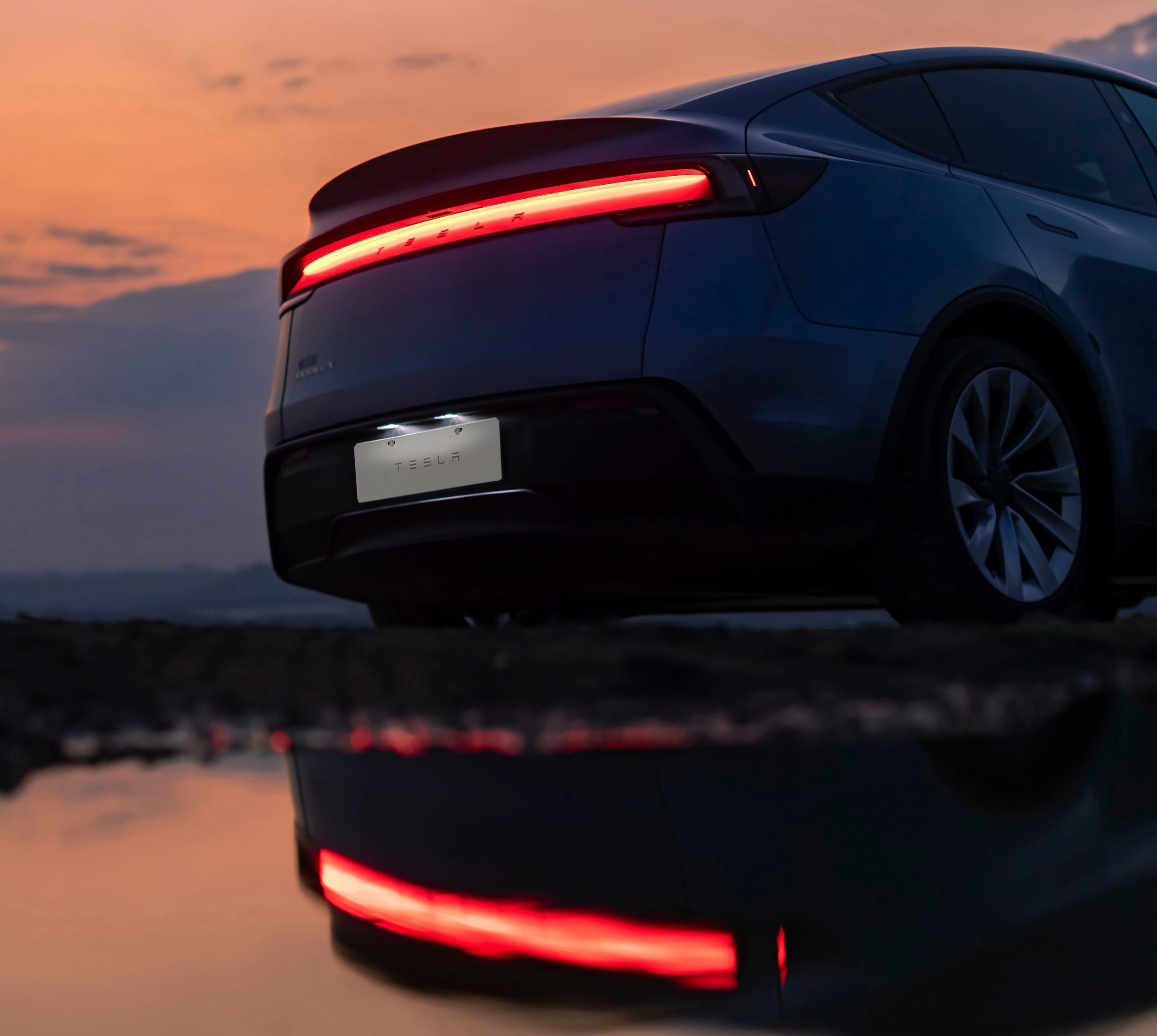
In recent comments to the Schwab Network, CFRA analyst Garrett Nelson stated that a lot of the “negative sentiment towards Tesla (NASDAQ:TSLA) is priced into the stock at its current levels.”
The CFRA analyst has given Tesla a price target of $360 per share.
Q1 A Low Point in Sales
The CFRA analyst stated that Tesla’s auto sales likely bottomed last quarter, as noted in an Insider Monkey report. This was, Nelson noted, due to Q1 typically being the “weakest quarter for automakers.” He also highlighted that all four of Tesla’s vehicle factories across the globe were idled in the first quarter.
While Nelson highlighted the company’s changeover to the new Model Y as a factor in Q1, he also acknowledged the effects of CEO Elon Musk’s politics. The analyst noted that while Tesla lost customers due to Musk’s political opinions, the electric vehicle maker has also gained some new customers in the process.
CFRA’s Optimistic Stance
Nelson also highlighted that Tesla’s battery storage business has been growing steadily over the years, ending its second-best quarter in Q1 2025. The analyst noted that Tesla Energy has higher margins than the company’s electric vehicle business, and Tesla itself has a very strong balance sheet.
The CFRA analyst also predicted that Tesla could gain market share in the United States because it has less exposure to the Trump administration’s tariffs. Teslas are the most American-made vehicles in the country, so the Trump tariffs’ effects on the company will likely be less notable compared to other automakers that produce their cars abroad.
Investor's Corner
Tesla average transaction prices (ATP) rise in March 2025: Cox Automotive
Tesla Model Y and Model 3 saw an increase in their average transaction price (ATP) in March 2025.
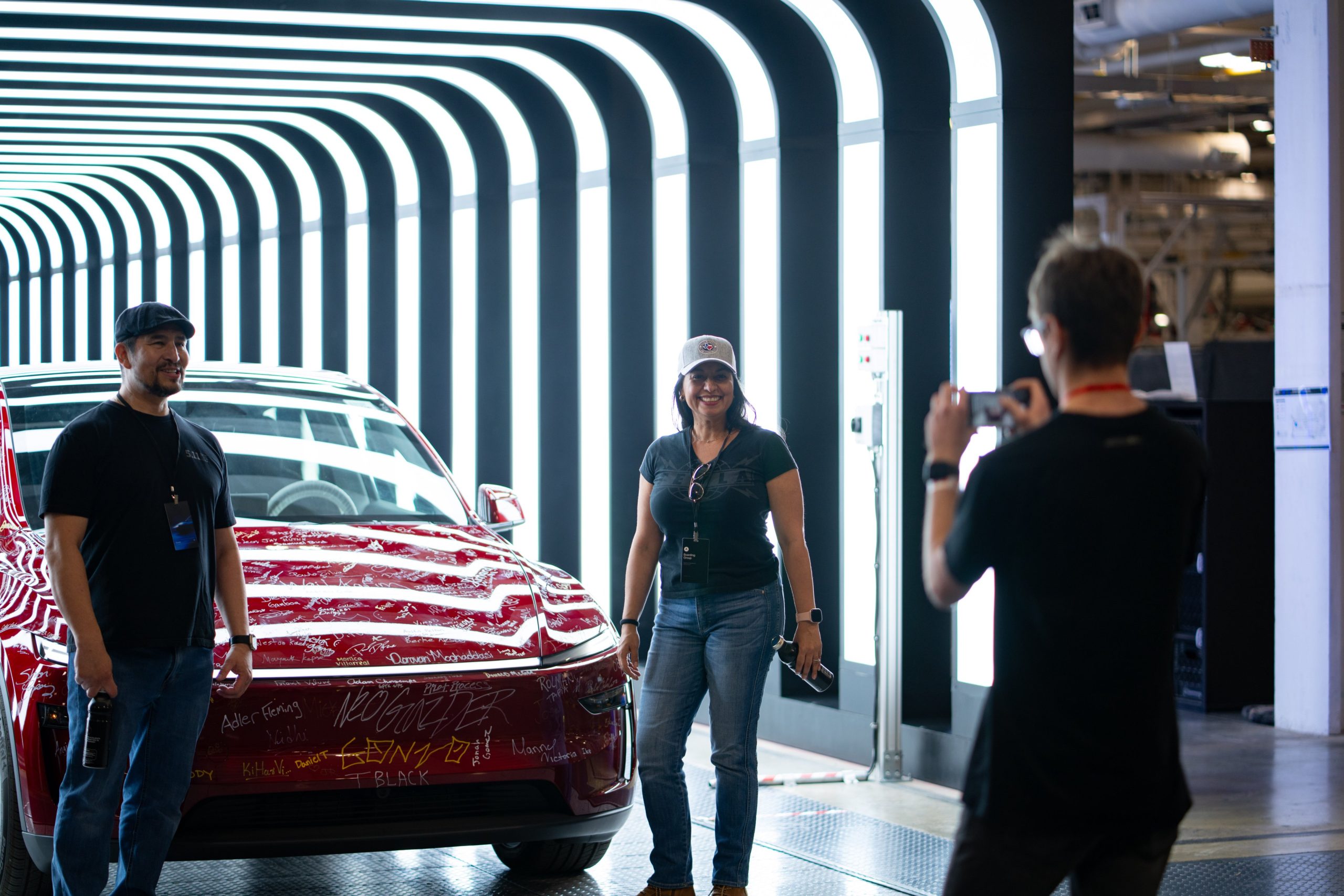
Data recently released from Cox Automotive’s Kelley Blue Book has revealed that electric vehicles such as the Tesla Model Y and Model 3 saw an increase in their average transaction price (ATP) in March 2025.
Cox Automotive’s findings were shared in a press release.
March 2025 EV ATPs
As noted by Cox, new electric vehicle prices in March were estimated to be $59,205, a 7% increase year-over-year. In February, new EV prices had an ATP of $57,015. The average transaction price for electric vehicles was 24.7% higher than the overall auto industry ATP of $47,462.
As per Cox, “Compared to the overall industry ATP ($47,462), EV ATPs in March were higher by nearly 25% as the gap between new ICE and new EV grows wider. EV incentives continued to range far above the industry average. In March, the average incentive package for an EV was 13.3% of ATP, down from the revised 14.3% in February.”
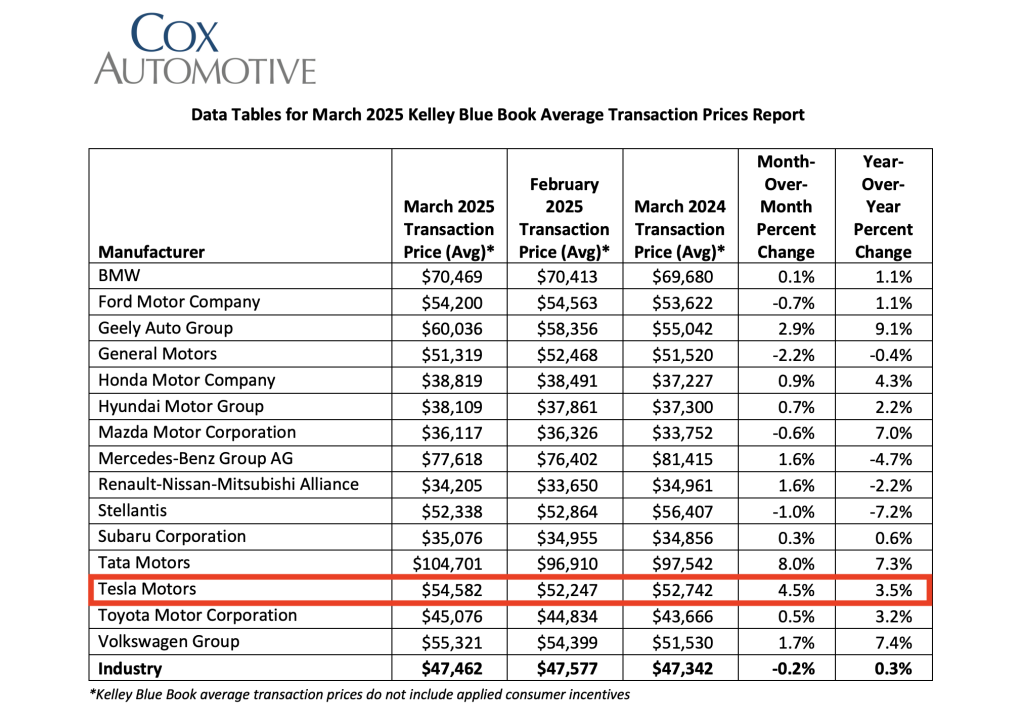
Tesla ATPs in Focus
While Tesla saw challenges in the first quarter due to its factories’ changeover to the new Model Y, the company’s ATPs last month were estimated at $54,582, a year-over-year increase of 3.5% and a month-over-month increase of 4.5%. A potential factor in this could be the rollout of the Tesla Model Y Launch Series, a fully loaded, limited-edition variant of the revamped all-electric crossover that costs just under $60,000.
This increase, Cox noted, was evident in Tesla’s two best-selling vehicles, the Model 3 sedan and the Model Y crossover, the best-selling car globally in 2023 and 2024. “ATPs for Tesla’s two core models – Model 3 and Model Y – were higher month over month and year over year in March,” Cox wrote.
Cox’s Other Findings
Beyond electric vehicles, Cox also estimated that new vehicle ATPs held steady month-over-month and year-over-year in March at $47,462, down slightly from the revised-lower ATP of $47,577 in February. Sales incentives in March were flat compared to February at 7% of ATP, though they are 5% higher than 2024, when incentives were equal to 6.7% of ATP.
Estimates also suggest that new vehicle sales in March topped 1.59 million units, the best volume month in almost four years. This was likely due to consumers purchasing cars before the Trump administration’s tariffs took effect. As per Erin Keating, an executive analyst at Cox, all things are pointing to higher vehicle prices this summer.
“All signs point to higher prices this summer, as existing ‘pre-tariff’ inventory is sold down to be eventually replaced with ‘tariffed’ inventory. How high prices rise for consumers is still very much to be determined, as each automaker will handle the price puzzle differently. Should the White House posture hold, our team is expecting new vehicles directly impacted by the 25% tariff to see price increases in the range of 10-15%,” Keating stated.
-
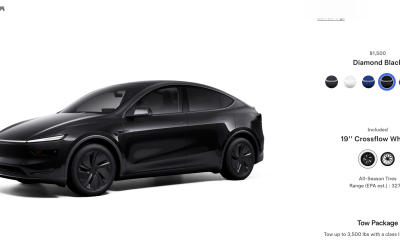
 News2 weeks ago
News2 weeks agoTesla rolls out new, more affordable trim of the Model Y Juniper in U.S.
-
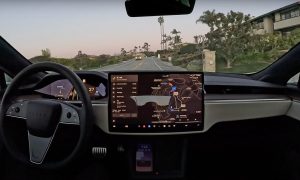
 News2 weeks ago
News2 weeks agoTesla expands Early Access Program (EAP) for early Full Self-Driving testing
-
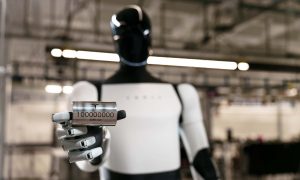
 News2 weeks ago
News2 weeks agoTesla celebrates key milestone for 4680 battery cell production cost
-
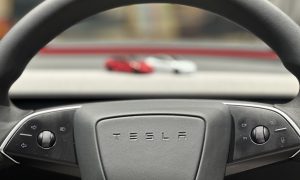
 Investor's Corner2 weeks ago
Investor's Corner2 weeks ago“Nothing Magnificent about Tesla (TSLA),” claims Jim Cramer
-
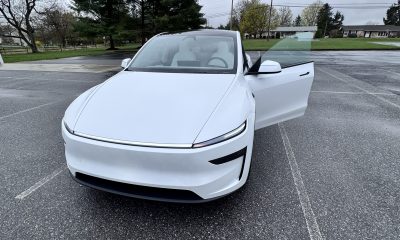
 News2 weeks ago
News2 weeks agoI took a Tesla new Model Y Demo Drive – Here’s what I learned
-
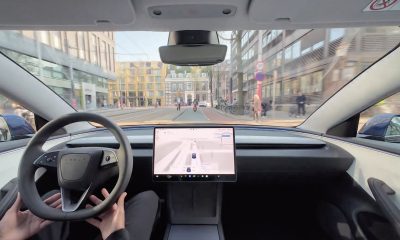
 News2 weeks ago
News2 weeks agoTesla Europe shares FSD test video weeks ahead of launch target
-

 News2 weeks ago
News2 weeks agoThis Tesla executive is leaving the company after over 12 years
-
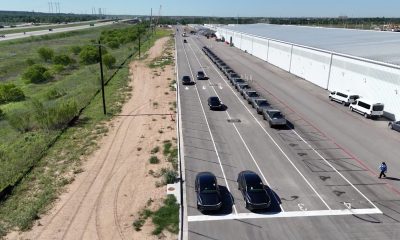
 News2 weeks ago
News2 weeks agoTesla’s Giga Texas vehicles now drive themselves to outbound lot

